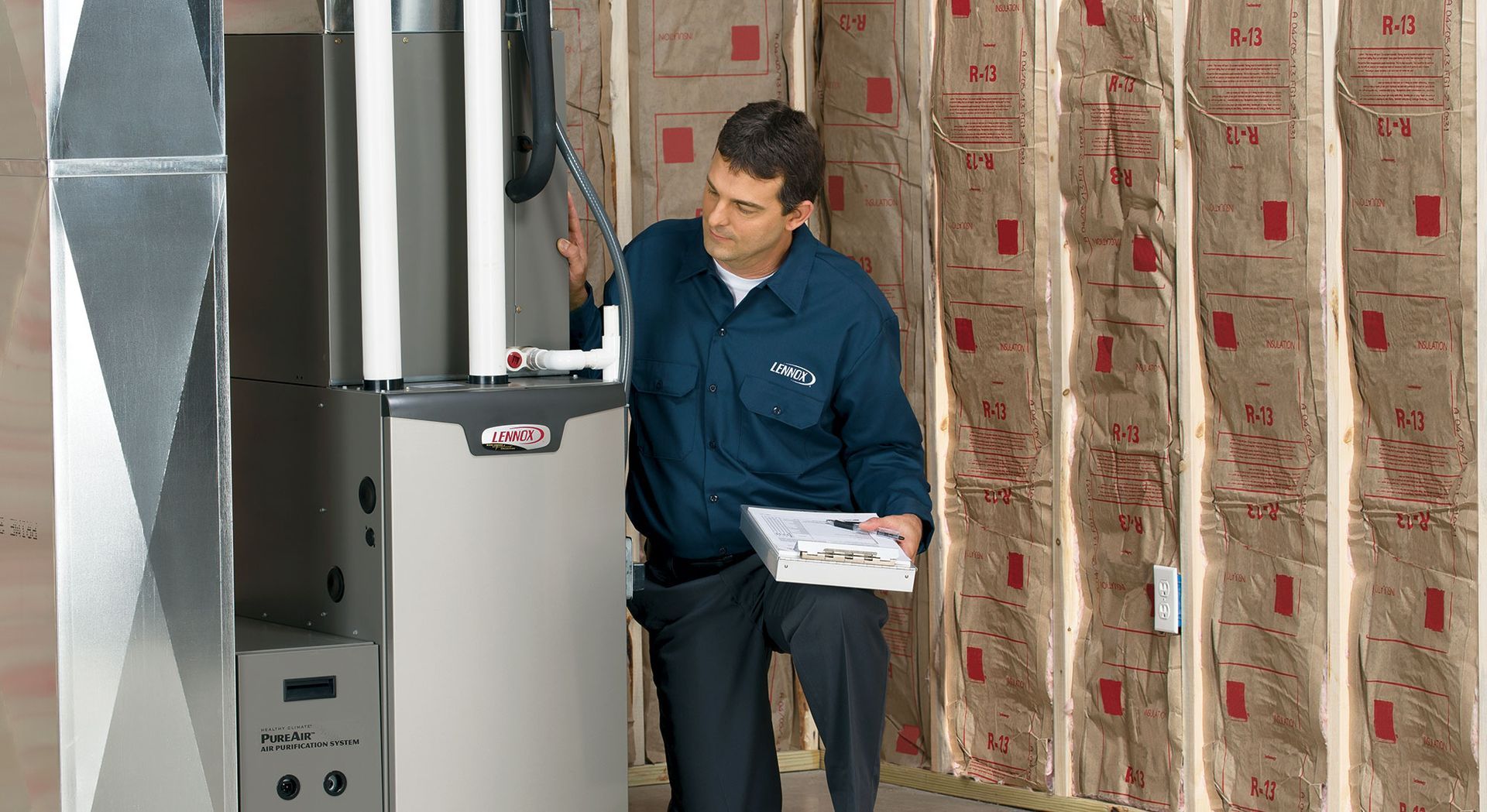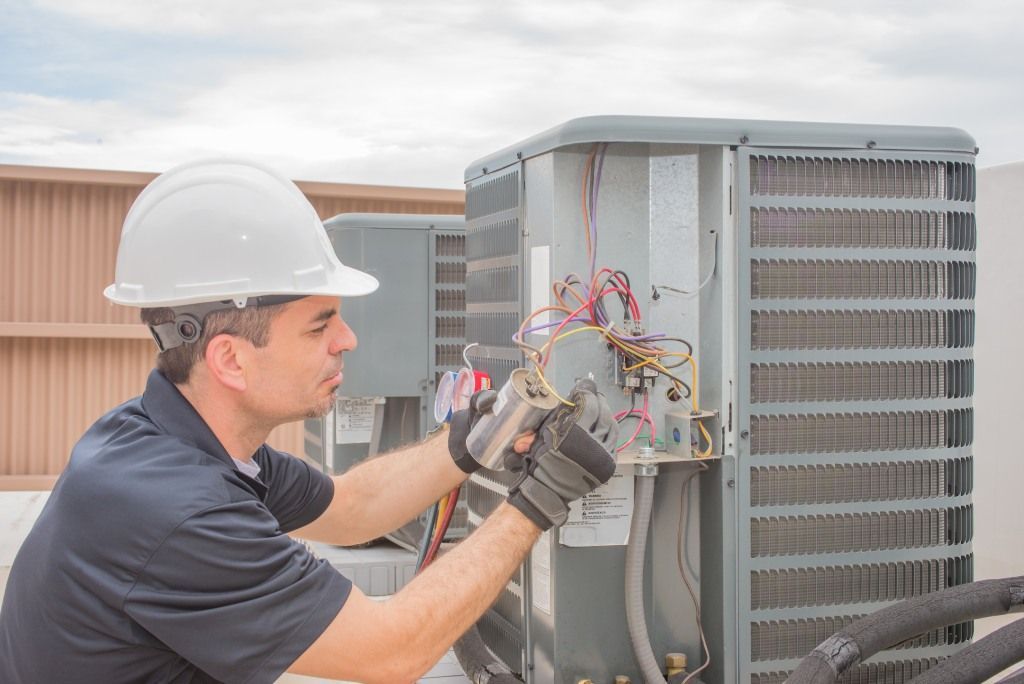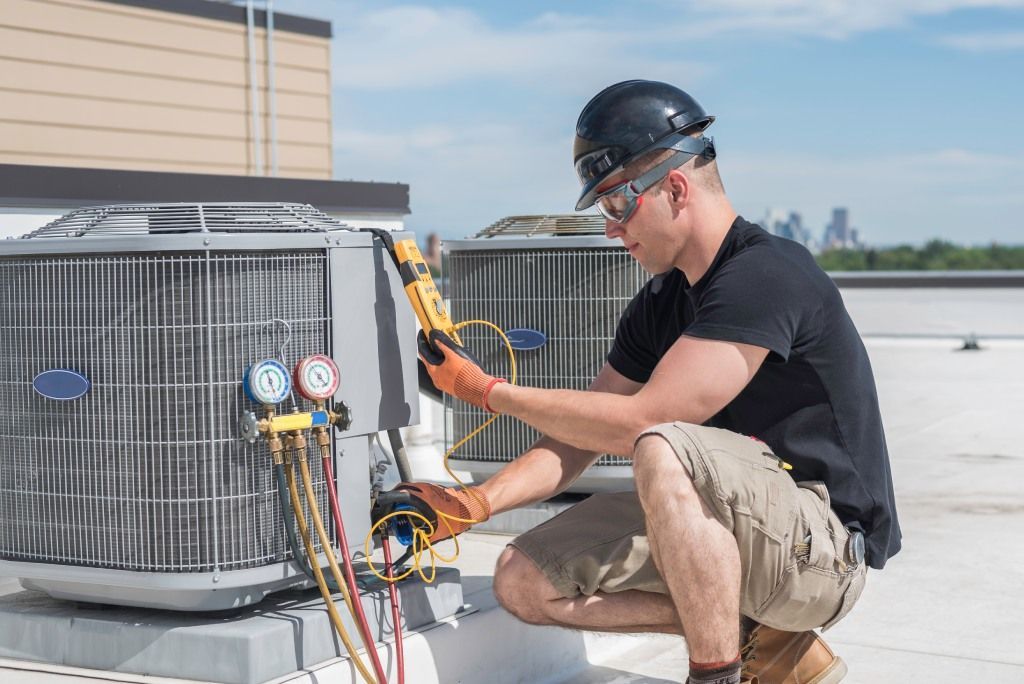Air Conditioner Repair and Maintenance Tips
AC Service
Air conditioning units require regular repair and also maintenance to keep them working at peak performance. A well-maintained AC unit perform better. A more efficient unit can also save you money each month on your energy bill. Here’s a look at some critical air conditioner repair tips and maintenance tasks that should be performed regularly on your AC unit.
Air Conditioner Repair Tips
- Clean the Filter Frequently
- One of the easiest things is to keep your AC running efficiently is to clean the filter. Over time, the filter collects dirt, dust, and debris, which can cause an obstruction. These accumulations cause the amount of intake air to decrease while increasing the amount of electricity necessary to keep the space cool. Every two to four weeks, clean the filter with a vacuum cleaner attachment. If highly soiled, wash the filter in warm water and mild dish detergent. Allow the filter to dry in direct sunlight.
- Replace Filters When Necessary
- If your filter is not reusable, it will need to be replaced every two to three months. Replacing a clogged, dirty filter with a new one can reduce your air conditioner’s energy consumption by 5 to 15 percent. Filters that are in constant use or homes with pets may require more frequent changing. Not only will you notice a difference in the air quality in your home, but you’ll also be preventing dirt and dust from accumulating in the unit, which can result in expensive air conditioner repair down the road.
Other Air Conditioner Repair Tips
- Ensure that the Coils are Clean
- Evaporator and condenser coils inside your unit can collect dust and dirt over the cooling season. Dirty coils are not able to absorb heat as well as clean coils, which reduces the efficiency of the air conditioner. At least once a year, check the coils to ensure that they are clean. If you do not have experience cleaning coils, hire a professional air conditioner repair service at Maxwell Heating & Cooling to complete this task.
- Seal and Insulate Your Cooling Ducts
- By sealing and insulating your cooling ducts is one of air conditioner repair tips, you can greatly improve the efficiency of your AC system. You’ll want to primarily concentrate on areas that need sealing and insulating, such as basements, attics, crawl spaces, and garages. Use metal-backed or duct sealant tape to seal all connections and seams. You’ll then want to insulate the ducts to keep the cool air from escaping. Sealing and insulating your cooling ducts can improve your system’s efficiency by up to 20 percent.
- Maintain the Area Around the Unit
- Outside AC units can quickly accumulate debris and require regular maintenance. Use a shop vacuum to remove any dirt, dust, fallen leaves, and other debris that may have fallen into or around the system. Trim back trees and bushes in the vicinity, as the condensing unit should have a minimum of two feet of clearance. Regularly check the condensate drain lines to ensure that the water is flowing freely and not backing up. It’s also important to frequently clean your condensate drain pans to prevent mold growth.
Contact Your Air Conditioning Carrollton Expert
Contact Maxwell Heating and Cooling today for air conditioning maintenance and repair appointments.
The post Air Conditioner Repair and Maintenance Tips appeared first on Maxwell Heating & Cooling.

If you're in the market for a new HVAC system, you may have noticed new terms popping up—SEER2 ratings and A2L refrigerants, to name a couple. At Maxwell Heating & Cooling, we want to help our customers in Carrollton and the surrounding areas make informed decisions, so let’s break down what these changes mean and why they matter for your comfort and energy savings. What is SEER? SEER stands for Seasonal Energy Efficiency Ratio, and it's been the standard measurement for air conditioner and heat pump efficiency for decades. A higher SEER rating indicates greater energy efficiency. For example, a 16 SEER system uses less energy to cool your home than a 13 SEER system. Introducing SEER2 Beginning in 2023, the Department of Energy introduced SEER2—a new testing standard that better reflects real-world conditions, including external static pressure in ductwork. SEER2 uses updated testing procedures that are more stringent, meaning the ratings are slightly lower than traditional SEER values for the same equipment. In short, SEER2 is not a different product—it’s a more accurate measurement of how that product performs in the real world. For example, a unit previously rated at 16 SEER might be rated closer to 15.2 SEER2 under the new testing method. Why the Change? The SEER2 standard ensures that homeowners get a more realistic picture of how efficiently their system will run under typical installation conditions. It's all about transparency and long-term energy savings. What Are A2L Refrigerants? In addition to changes in efficiency standards, 2023 also ushered in a shift to A2L refrigerants. These are mildly flammable, low-GWP (global warming potential) refrigerants that are better for the environment than older options like R-410A. A2L refrigerants are part of the HVAC industry's move toward more sustainable and climate-friendly solutions. How SEER2 and A2L Work Together As manufacturers adapt to A2L refrigerants, they're also designing new HVAC systems that meet SEER2 requirements. This combination ensures that new equipment is not only more environmentally responsible but also performs more accurately according to how it’s truly used in your home. What This Means for You If you're considering upgrading your HVAC system, you’ll likely encounter SEER2 ratings and A2L refrigerants. At Maxwell Heating & Cooling, our team is fully trained and certified to install and service this new generation of equipment. We’ll guide you through selecting the right system to match your comfort needs, budget, and energy goals. Ready to Upgrade? Contact Maxwell Heating & Cooling today for a free estimate or to learn more about how SEER2 and A2L refrigerants can impact your home comfort for the better. Call us or schedule your consultation online today!

Regular HVAC maintenance is a vital aspect of responsible homeownership or property management. While it’s tempting to overlook or neglect routine maintenance, doing so can lead to costly repairs, reduced system efficiency, and compromised indoor air quality. By investing in regular HVAC maintenance, you can enjoy numerous benefits that make it well worth the effort and cost.


